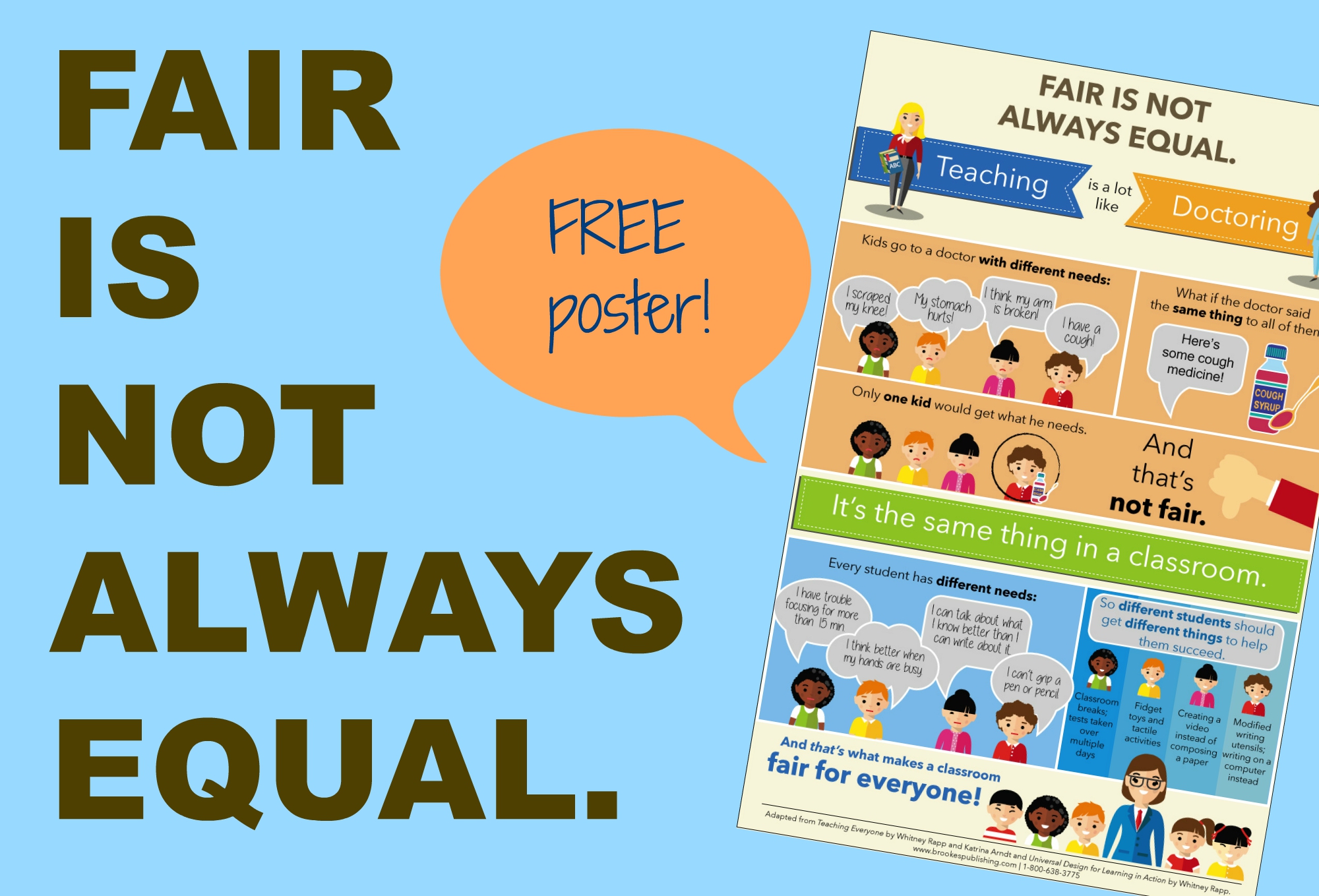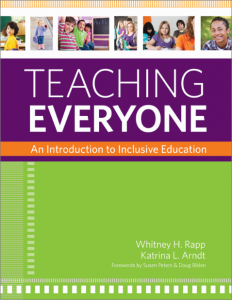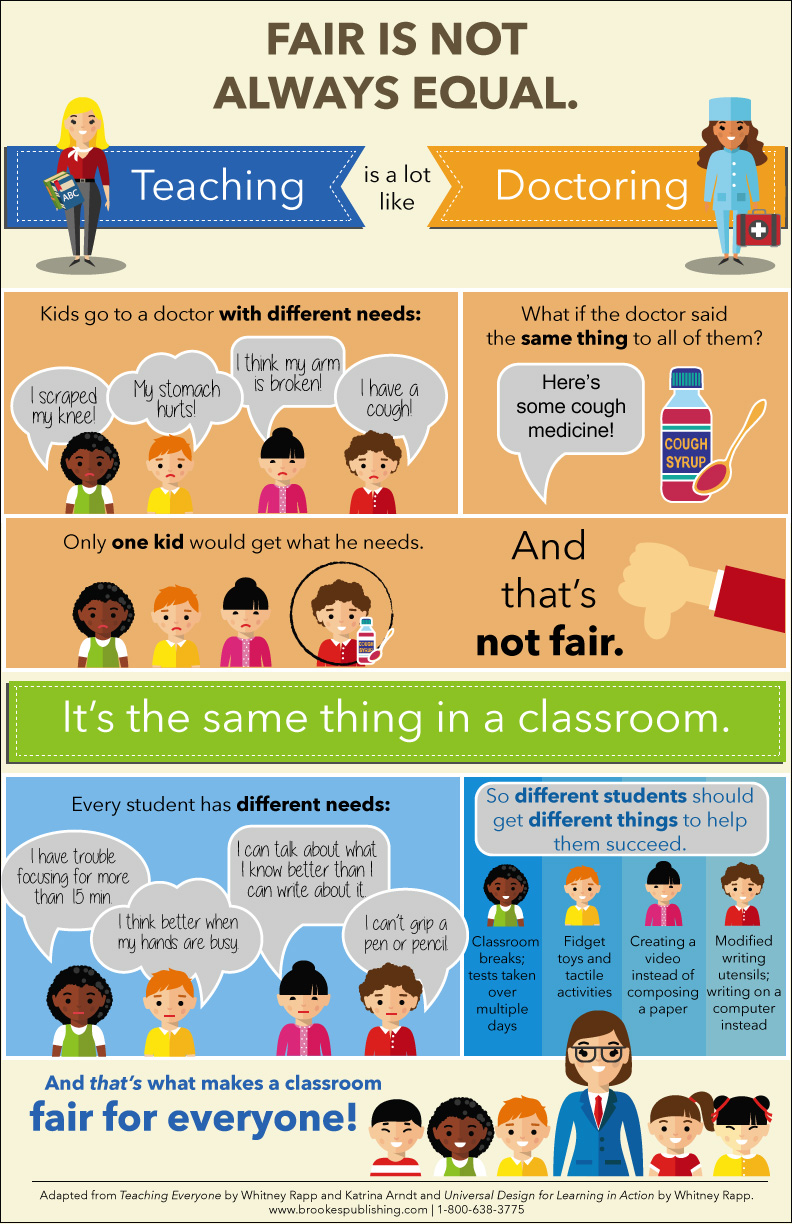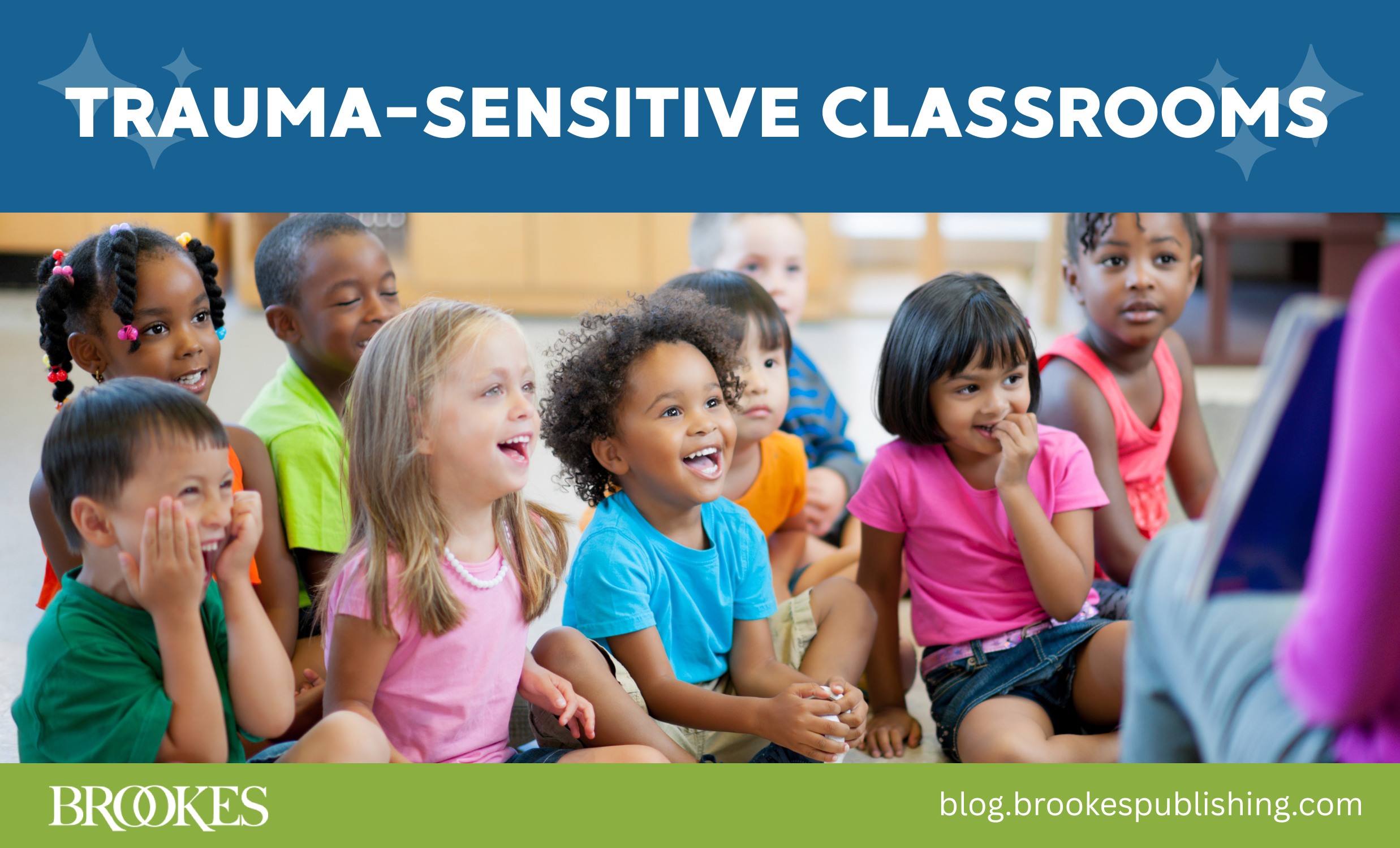Fair Is Not Always Equal (FREE inclusion poster!)
September 22, 2015
 First, a big thank you to everyone who commented on last week’s “Why do you support inclusion?” post. We got wonderful, diverse answers from so many passionate inclusion advocates, and your reasons were a joy to read.
First, a big thank you to everyone who commented on last week’s “Why do you support inclusion?” post. We got wonderful, diverse answers from so many passionate inclusion advocates, and your reasons were a joy to read.
Because all kids deserve the best.
Because diversity is beautiful.
Because together we are better.
Because it works.
Thanks for sharing your thoughts; your free inclusion calendars are going in the mail this week!
I’m going to keep the ball rolling today with a cool printable I think inclusion advocates will love. It’s a poster inspired by two resources: Universal Design for Learning in Action, Whitney Rapp’s practical UDL guide; and Teaching Everyone, a handbook from Rapp & Arndt that covers just about every aspect of inclusive education. Created by one of our talented in-house designers, this poster is a great visual depiction of one of the central tenets of inclusion: Fair is not always equal.
The poster is yours to print and share–if you like it, please consider posting it on Facebook/Pinterest/Twitter to help spread the word! (And thanks, as always, to everyone who pins, tweets, and shares Inclusion Lab posts; we want to get these practical tips and downloads in as many hands as possible.)
Here it is!
What do you think? Have you encountered barriers to the “fair is not always equal” mindset? How do you ensure that all students get what they need? Scroll down to add your comment!
New to the Brookes Inclusion Lab? Keep reading–check out our archive of Inclusion 411 posts, packed with practical tips, infographics, and free downloads!






Write a Comment
Your email address will not be published. Required fields are marked *
comments
Cristina says
Loved the poster, Thanks for sharing it! Any chance you have it in Spanish? I could do the translation if you need.
jlillis says
We don't offer it in Spanish yet, Cristina, but we'd like to. Sending you an email!
Tim Hill says
Love the poster - do you have an actual poster sized, that you can send me; or I can purchase?
jlillis says
Hi Tim--sorry to say we don't offer these for sale, just as a free download. I will pass your comment on to my marketing director, though!
Cecile says
Is it fair to give the same consequence to students regardless of learning difference? Should consequences be appropriate to the learning need of a student? Example: did not submit the right homework (a different one was carelessly submitted) Should the student be penalized with a failed mark because “it is not fair to those who submitted the right homework?”
jlillis says
Hello Cecile--thanks for commenting. We posed this question to inclusion expert Nicole Eredics, author of the book Inclusion in Action. Here's what she had to say:
The broad answer would be "no," it is not fair to give the student the same consequences as other students if the wrong submission was a result of the learning issue. To do so would be expecting that the student has the same capabilities and skills as their classmates (it is like asking a fish to climb a tree). Rather, if the student has known learning issues then supports need to be in place to help the student successfully hand in the right work (with the goal of the student eventually being able to do it with independence). For example, the student could receive a reminder, an incentive, the help of parents, be able to keep the assigned work at school, or maybe lose only a mark for handing in the wrong work (if the student had control over the situation). So, the consequences should definitely be appropriate to the needs of the student and should be planned out/discussed with the student ahead of time. Just remember that "fair" does not mean "equal" :)
Grading can be a complicated process in an inclusive classroom. Given that there are so many different types of learners, teachers typically use systems that focus heavily on the process and understanding of material with the understanding that some students will require flexibility and support when asked to provide/hand-in the work. (For example, in the "real world" we have bills with due dates but there is usually a day or two of grace without serious penalization.) Rubrics and performance assessments are very common. For more ways to grade and assess students with learning differences in the classroom, I strongly recommend checking out this page of information and resources by Dennis Munk:
http://www.specialconnections.ku.edu/~kucrl/cgi-bin/drupal/?q=assessment/grading
He has some very helpful information, tips, and tools for assessment.
Post a Comment